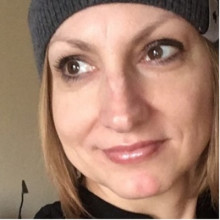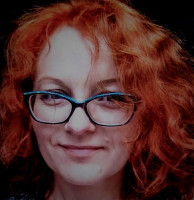
Assistant Professor at the Faculty of Pedagogy and Psychology at the University of Humanities and Economics in Łódź. Teacher, trainer with twenty years of experience in social pathology and prevention of risky behaviour in school environment.
The author of publications devoted to bullying, psychological violence and school prevention models.
An expert and researcher in european projects.
COURSES AVAILABLE:
- Youth Subcultures
Subject devoted to the analysis of youth subcultures in terms of sociology and psychology. We will focus on the phenomenon of destructive sects and discover the psychological mechanisms of toxic manipulation in destructive cults. We will work on a model of preventive actions that will enable effective coping with the situations of sects phishing.
- Social Prevention
Subject devoted to the psychological analysis of selected risky behaviors (e.g.bullying, psychological violence, behavioral addictions). You will be also introduced to modern approaches of prevention (e.g positive prevention). During social prevention classes you will also have the opportunity to participate in study visits in Polish schools and work with pupils.

A graduate of the Faculty of Visual Education at the Academy of Fine Arts in Lodz, doctor of pedagogy, teacher in the field of pedagogy at the Academy of Humanities and Economics in Lodz. She conducts classes in the field of pedagogy and didactics of creativity, art education, art therapy, sociology of education, workshops aimed at the creative activation of children, adolescents, adults and the elderly, as well as workshops on biography. Responsible for conducting training in the project method for the teaching staff of AHE. Author of the book “Life beyond Scheme - Analysis of the Authors' Biographies”, co-author of “Autobiography as a Creative Challenge - scenarios for biographical workshops” and “Try Differently. Scenarios of activities developing creative skills”. She is interested in the issues of creativity in the aspect of human autobiographical experiences and innovative educational methods supporting comprehensive human development at various stages of life - also in adulthood and old age. Besides, she is an active participant in many international projects. She loves contact with nature, books, photography, art and Indian cinema.
COURSES AVAILABLE:
- Didactics of Creativity
The main goal of the subject is to introduce students into practical aspects of stimulating creative thinking and creative attitudes of pupils. During classes students are using innovative tools, techniques and methods of creative work and preparing own projects for implementation creativity into pedagogical and educational situations. Students learn about methods of didactics of creativity such as: learning through art, divergent and convergent thinking in the process of creativity, out-of-the-box thinking and its stimulation, brainstorming, mind mapping, effective problem solving, associations in creative process, storytelling and the role of metaphor and analogy in developing creative skills.
- Psychopedagogy of Creativity
The main goal of the subject is to introduce students to the basic pedagogical and psychological knowledge about creativity and the conditions of the development of creative abilities of children, adolescents and adults. Lecture are subordinated to the four dimensions perception of creativity and modern theories of creativity. Classes take the form of a workshop supporting the creative development of students. They allow for the development of communication in a group, recognizing the features of creative people, self-knowledge, planning the path of development as well as discovering and expanding one's own passion, developing own creative potential.
